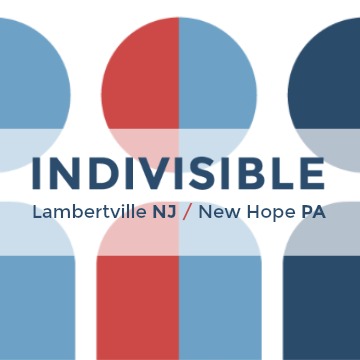Contributed by Amara Willey.
Citing loopholes and possible Constitutional challenges, Gov. Phil Murphy conditionally vetoed a campaign finance reform bill in May. Critics suggest that Murphy’s motivation is more political than altruistic.
A conditional veto means that the governor objects to parts of a bill and proposes amendments that would make it acceptable. It is now up to the legislature to decide if it will follow the governor’s recommendations and rewrite the bill or try to override the veto with a two-thirds vote. The danger is that the legislature may just let the bill, NJ-S1500, languish, thus killing the chance for substantial election reform.
“Strengthening disclosure requirements will help bring greater transparency to the work of government and enhance public trust in the political process,” Murphy said in a statement. “Sadly, S1500, as currently written, falls short of that goal. The bill contains egregious loopholes that fail to create reasonable and consistent disclosure standards across the board.”
In the 20-page veto document, Gov. Murphy outlined the reasons why he didn’t think the bill was strong enough. Some of the loopholes he would like to see tightened in order to sign the bill:
- Not including limited liability corporations (“LLCs”) and other for-profit corporate forms
- Allowing most groups that only engage in policy advocacy to circumvent disclosure requirements
- Not being tough enough on holders of large public contracts which can direct all of its contributions to PACS that either channel the money to the candidates or run independent efforts to help their elections
The governor also had concerns about the constitutionality of parts of the bill, referring to other similar bills that had been challenged successfully in the Supreme Court.
Although this seems reasonable, some view his veto as a political move.
“Murphy makes a claim that the bill, as written, might get challenged in court and that there are some sources of dark money it does not address, but his solution is to weaken the bill, which is counterproductive,” says Lucas Dicus, a Wolf-PAC New Jersey writer in an ROI opinion piece.
Dicus refers to what he calls “an ongoing spat” between Murphy and Senate President Steve Sweeney (D-West Deptford). The bill, which Sweeney supports, includes a portion that would force disclosure of donors by groups such as New Direction New Jersey, a 501(c)(4). New Direction is directed by Murphy’s former campaign manager, Brendan Gill, who is also a county freeholder. Essex County Freeholder Gill would be forced to choose between his elected office and remaining with New Direction New Jersey. Dicus explains, “It would seem to be common sense that an elected official should not be involved in such groups, but this part of the bill would be removed by Murphy’s conditional veto.”
“One of the proposed changes in the governor’s conditional veto of the bill, NJ S1500 (18R), is almost certainly a shot at South Jersey Democratic power broker George Norcross by requiring companies that receive tax incentives to have stricter campaign donation disclosure requirements,” Matt Friedman wrote in Politico, an online political magazine.
Norcross’ insurance brokerage, Conner Strong & Buckelew, was approved for $86 million in tax credits by the New Jersey Economic Development Authority in 2017, one of many companies that have been approved by the agency to eventually receive about $11 billion in incentives. “Norcross and Murphy are now engaged in open political warfare over the tax incentive programs,” Friedman said. Conner Strong & Buckelew categorically denied this accusation.
Both sides seem open to a compromise. Although the bill’s primary sponsor State Sen. Troy Singleton is considering an override vote, he also said, “If the governor wants to come back to the Senate and Assembly leadership and say ‘maybe we overstepped in our conditional veto and want to negotiate a new bill to move forward’ that would be up to our leadership team,” Singleton said.
The New Jersey Globe reported that Murphy spokesperson Mahen Gunaratna said via text message, “We’re open to working with the Senator on a compromise and continuing our discussion with the Legislature on the broader issue of disclosure.”
Call to Action:
- Contact your legislative representatives to urge them to pass this bill. To stay updated, get on Wolf-PAC’s mailing list: https://wolf-pac.com/.
- Learn more about Dark Money at the ILNH Springboard event on June 3, 7 pm at the Lambertville Free LIbraryILNH Springboard event on June 3, 7 pm at the Lambertville Free LIbrary.
Sources:
- https://www.politico.com/states/new-jersey/story/2019/05/13/murphy-targets-norcross-in-veto-of-dark-money-bill-1014572
- http://www.roi-nj.com/2019/05/22/opinion/fight-murphys-conditional-veto-of-dark-money-bill/
- http://d31hzlhk6di2h5.cloudfront.net/20190513/74/04/df/24/b0da32a9bcf33ef7e9244f7e/S1500CV.pdf
- https://newjerseyglobe.com/legislature/veto-override-on-the-table-for-dark-money-bill/
- https://www.politico.com/states/new-jersey/story/2019/05/14/sponsor-says-hes-likely-to-seek-override-of-murphys-dark-money-bill-veto-1015770



